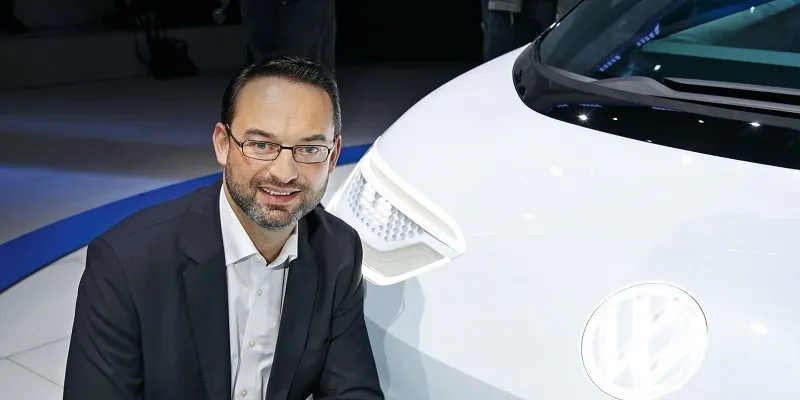The car is an operating system – Volkswagen’s Christian Senger
When Christian Senger was appointed head of Volkswagen AG’s e-mobility division two years ago, his task was to help the auto maker bring in an era of complete electric vehicles with solutions that were affordable, and offered long range driving on a single charge.
His responsibility also included setting up EV infrastructure so as to scale up EV production. At the Frankfurt Motor Show this year, Christian showcased the ID concept - VW’s vision for the future of mobility, where electric cars are sporty and functional.
He says the $259 billion group will lead the production of EVs across the world. “E-mobility”, he says, will make automobile companies function like smartphone companies that offer rich services, and will eventually become software companies.
In an exclusive interview with Your Story at the Frankfurt Motor Show, Christian Senger says tells that at some point, his division would look to list on the stock exchanges because of the value it was bringing in combining data, artificial intelligence, and transportation to one platform.

YS: Electric vehicles have never been able to be mass produced, but you are placing your bets on a large roll out, why?
CS: Over the last two years, regulation has made the VW Group view electric vehicles as the viable future, and we have announced investments in this technology.
Earlier, these cars were expensive thanks to batteries not being mass produced, the range was lower and infrastructure was scarcely available. My task was to make e-mobility emotional; people have to believe that they can own an electric car and have the same features of cars that run on gasoline.
The other thing is that the car is now an operating system. The Volkswagen operating system will be available with a whole range of services from startups and partners. By 2020, we will have all this in place and we will be one of the largest producers of electric vehicles in the world.
By then, I must also prove to the board of Volkswagen that this can be a sustainable business model.
YS: What is converging by 2020 and why the rush to electric vehicles?
CS: In 2020, few things will happen parallelly. Regulation in Europe has been pushing every car manufacturer to reduce emissions. Now, in China and the USA the move towards electric vehicles is gaining momentum.
Apart from regulation, battery technology now offers longer range, and the cost of the battery is dropping drastically. We are working with our global suppliers to drop the price. Today, 70 percent of the battery cost is that of the cells, 30 percent involves system integration.
Batteries today are of good quality and are as good as any combustion engine out there. Solid state batteries are the future because they do not use electrolyte in liquid form, but instead in a solid state. This intrinsically brings down the shape and size of the batteries, enabling the future car’s design to be very different.
The rising energy density in batteries is what is pushing companies to invest in electric vehicles.
I mentioned about being like Apple. The attractiveness comes from services that we offer with our partners. Now, some of you may think we are going to become a software product company, and yes, we have to think like that.
But we still have production competitiveness and industrial capabilities that we take pride in. The only thing that can change is that we have to strengthen our partnerships in securing data and artificial intelligence. Also, we have had a closed ecosystem as automobile manufacturers, and we have to change now.
People cannot be dictated anymore on the kind of services they want on their smartphone interaction with the car.
YS: What are your challenges when you start thinking about the digital economy?
CS: This is an era of artificial intelligence and the car will generate so much data. At Volkswagen, we do not understand this, but we need to speed up these services. Security will be very important. We have achieved traffic safety, but information theft is what all of us are worried about.
In AI, we have a JV with an Israeli company and it is still early days in understanding how AI will pan out. But, what is certain is that the digital economy will usher in plenty of on the go services thanks to data sharing.
We can do several things in the car of the future, music, banking and much more. It is the duty of the automaker to protect this. We have to step over the bridge. People see the benefit of sharing data today, and they understand it allows them to get services to make their daily living better.
YS: What is the biggest challenge for you?
CS: Electric vehicles need infrastructure. It is not enough to tell people to charge their vehicles at home. People will travel long distances and there needs to be a massive number of charging centres set up if electric vehicles should scale up. People should not suffer when they get to a charging station. They cannot get to a charging station and find they have to wait for an hour to slot their car for charging. This is what the industry is currently solving.
Volkswagen will build charging stations every 150 kilometres to make electric vehicles a viable business by 2020.







